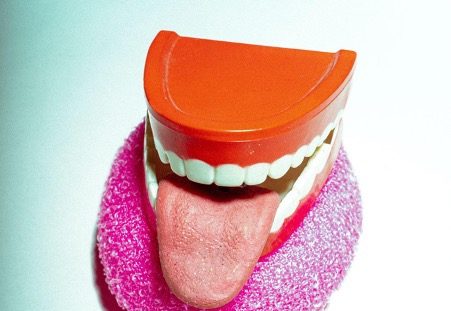
Everything you need to know about tongue yeast infection, also known as oral thrush, to spot the signs as early as possible.
Oral candidiasis, often known as oral thrush, is a condition in which the fungus Candida albicans accumulates on the mouth’s lining. Candida is a common bacteria in the mouth, but it can sometimes overgrow and create symptoms.
If you suspect you might have a tongue yeast infection or simply want to know more about the topic, this article will come in handy. Below you can read all about oral thrush, including a detailed definition, its possible causes, symptoms as well as recommended medications, and when to see a doctor for specialized treatment.
What Is A Tongue Yeast Infection?
When a yeast infection develops inside your mouth, it is known as oral thrush. Oral candidiasis, oropharyngeal candidiasis, or just thrush are all names for the same condition. Infants and toddlers are the most common victims of oral thrush. On the inner cheeks and tongue, it forms white or yellowish pimples. Treatment typically gets rid of the bumps.
The infection is usually mild and only causes minor complications. It can, however, spread to other parts of the body in those with compromised immune systems, causing potentially catastrophic problems.
Possible Causes Of Oral Thrush
Oral thrush symptoms may not be noticeable at first. Creamy white lesions on your tongue, inner cheeks, and occasionally on the roof of your mouth, gums, and tonsils; slightly raised lesions with a cottage cheese-like appearance; redness, burning, or soreness that may be severe enough to cause difficulty eating or swallowing; slight bleeding if the lesions are rubbed or scraped; cracking and redness at the corners of your mouth; loss of taste, redness, irritation a cottony feeling in your mouth; loss of taste (denture stomatitis).
The lesions may migrate downhill into your esophagus, the long, muscular tube that runs from the back of your mouth to your stomach, in severe cases, commonly due to malignancy or a weakened immune system caused by HIV/AIDS (Candida esophagitis). If this happens, you may have trouble swallowing, pain, or the sensation that food is stuck in your throat.
Is Oral Thrush Contagious?
It’s possible to spread the fungus that causes oral thrush onto someone else if you kiss them if you have it. Oral thrush could occur in a person in some specific situations described below.
Since oral thrush is caused by a fungus that also causes yeast infections in other parts of the body, you can spread the fungus from one place of your body to another. You can spread the fungus to your partner during vaginal sex, anal sex, or oral sex if you have oral thrush, a vaginal yeast infection, or a penile yeast infection. In some situations, if you’re pregnant and have a vaginal yeast infection, the fungus can be passed to your baby during delivery.
You can also spread the fungus to your infant if you have a breast yeast infection or a nipple yeast infection while breastfeeding. If your baby has oral thrush and breastfeeds, they can pass the fungus on to you.
How To Treat A Tongue Yeast Infection
Oral thrush normally clears up after a few weeks of starting treatment. However, it is possible that it will reappear in some circumstances. Adults with recurrent occurrences of oral thrush with no known cause will be evaluated by their healthcare provider for underlying medical issues that may be contributing to the thrush. During their first year of life, infants may experience many episodes of oral thrush.
If you’ve been diagnosed with oral thrush or spotted symptoms and want to purchase the right medication, take a look at the following list.
- Diflucan. Great for preventing and eliminating fungal infections. It is available in liquid form as well as tablets.
- Nystop. An excellent mouthwash with antifungal properties that you can swirl in your mouth or swab in the mouth of your child.
- Fungizone. Used to treat severe instances of oral thrush.
When To See A Doctor For Tongue Yeast Infection
Consult your doctor or dentist if you or your child develops white lesions within the mouth. Thrush is unusual in healthy older children, teenagers, and adults, so if your kid or teen develops thrush, consult your doctor to see if further testing is required to rule out an underlying medical issue or other cause.
Your doctor may take a biopsy of the afflicted area to confirm the diagnosis in some circumstances. They will scrape a small part of a lump from your mouth to do a biopsy. After that, the sample will be sent to a lab to be tested for C. Albicans. A throat swab culture or an endoscopy may be used to confirm the diagnosis if your doctor suspects you have oral thrush in your esophagus.






